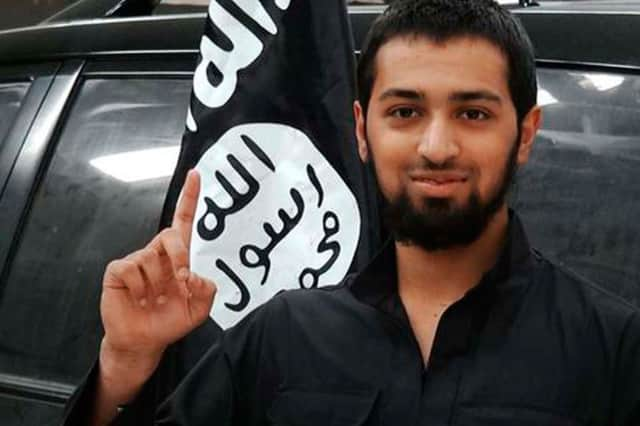Saleha Jaffer: Only closer relationships can tackle radicalisation


This young man is now lost to his parents, stolen from the warmth and safety of his family by vile extremists who have poisoned his mind with their lies and hatred, and who are for the most part responsible for his death.
Many will now be asking – how can a young boy, not even old enough to vote, choose to blow himself up for control of an Iraqi oil refinery, thousands of miles away from the love his family?
Advertisement
Hide AdAdvertisement
Hide AdThe simplest answer is because he was groomed online by these preachers of death, who played on his insecurities and vulnerability, to persuade him that this was his calling and that he would be martyred for a greater cause.
He was badly misguided. It is written in the Holy Koran that: “And your Lord has commanded that you shall not serve (any) but Him, and that you shall show goodness to your parents.”
Indeed, for Muslims, there is no greater responsibility or obligation than to Allah and to your parents. One does not exclude the other; you must treat your parents with utmost respect, obey them and look to them for wisdom. It is an irony that Isis lays claim to piety while telling young people that they should go against clear religious obligations.
I have worked with many families like those of Talha Asmal over the past eight years since I set up the organisation Families Against Stress and Trauma. One thing they all say to me is that they just wished their son or daughter had spoken to them first, to have let them in, to have looked to them for help in their struggle – but sadly many do not.
Advertisement
Hide AdAdvertisement
Hide AdFamilies now face the greatest and most insidious threat to the future of their children, that of online radicalisation.
This can take the form of slick propaganda, but it can also be through ‘peer to peer’ relationships, in which Isis radicalisers seek to befriend and then cajole young people into travelling.
It is therefore vital that we all look at our relationships with our children and ask ourselves if they could be closer, more inclusive and ultimately safer.
We must do all we can to ensure our door is always open, our young boys and girls are empowered to talk to us and are kept safe from harm.
Advertisement
Hide AdAdvertisement
Hide AdI spend much of my time working with vulnerable families and individuals, some who are struggling with finding their place in society, some who are dealing with the loss of children to groups like Isis and some who have themselves been targeted by extremists.
My message to all is to communicate as much as they can with each other, because this is fundamental in both the fight against radicalisation and in the healing process.
In addition to the terrible news of Talhal’s suicide bombing, the news of three women and their nine children from Bradford potentially making the terrifying journey into the middle of a war zone leaving behind devastated family and friends.
The insidious way Isis work to play on insecurities and fears to persuade their targets that they have no choice but to travel is sickening.
Advertisement
Hide AdAdvertisement
Hide AdLikely to have been told lies such as that life in the so-called Caliphate is safe, secure and a paradise for Muslims, these women have fallen for the mis-truths of those who do not have their best interests at heart.
This is an organisation that glorifies rape, promotes the use of child soldiers and removes all choices from women. It confines them to their homes, prescribing a strict control over their every waking moment, with the threat of violence ever present.
To the young boys and girls, men and women thinking of joining Isis or radical groups like them, I would just like them to stop for a moment to consider the pain and unnecessary suffering they will cause to their families, their mother and fathers who have raised them and loved them since they were born. To their parents, they are the most precious thing on earth. To Isis, they are nothing more than walking weapons, to be sacrificed without a thought.
It is the responsibility of all of us, mothers and fathers, friends and family, to ensure we understand the threat of online extremism and do everything we can to ensure our vulnerable young minds are not lead down the dark path of radicalisation.
Advertisement
Hide AdAdvertisement
Hide AdOnly together can we tackle this threat and only together can we protect those we love the most.
Saleha Jaffer is the founder of Families Against Stress and Trauma (www.familiesmatter.org.uk), an organisation which offers support and advice to vulnerable families and individuals.